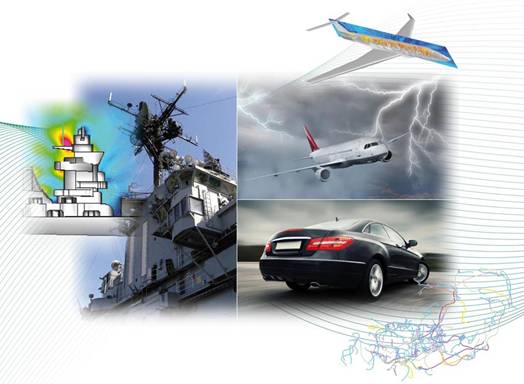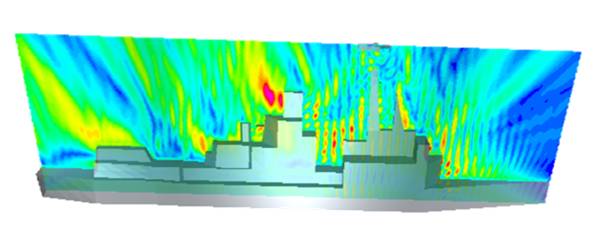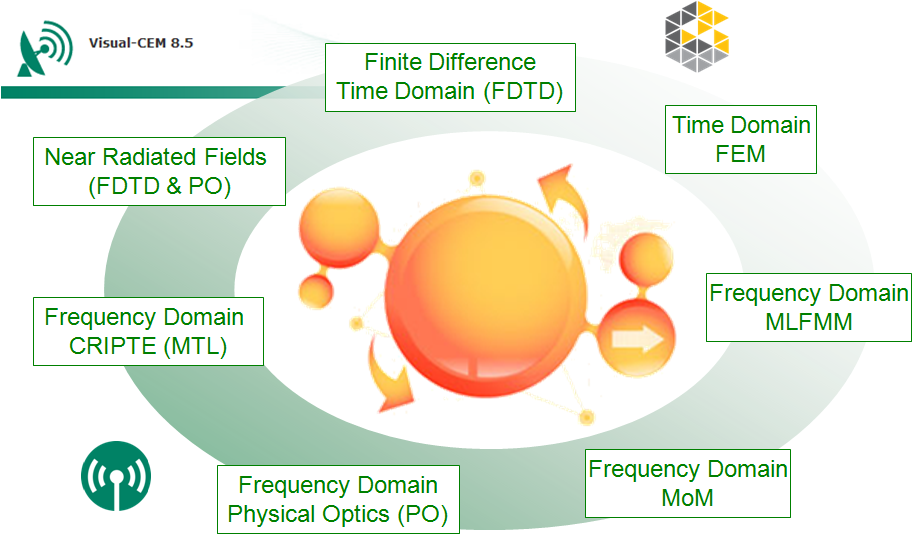A Complete Environment for Computational Electromagnetics (CEM)
CEM One is a consolidated CEM software package with its first commercial shipment in December 2012, combining the best of Computational Electromagnetics, namely PAM-CEM Simulation Suite and Efield Solutions.
PAM-CEM Simulation Suite operates mainly from medium to high frequency range. When targeting a wide frequency spectrum, as usually managed with EMC/EMI issues, time-domain techniques are applied to investigate electromagnetic phenomena appearing along those complex cables networks connecting onboard electronics.
Efield Solutions is primarily frequency-domain orientated with focus on antennas and scattering, making the overall solution fully consistent. ESI acquired Efield at the end of 2011.

The consolidated CEM solution emphasizes a coupling and hybridization strategy, extending well beyond previous limits with larger models, higher operating frequencies and more sophisticated scenarios, taking electromagnetic modeling one step further.

CEM One targets the following industries:
Automotive & Ground transportation
- EMC/EMI with internal cabling
- Active Safety and Radar devices
- Antenna placement, optimization, and other coupling phenomena
Aeronautics & Defense
- Radar signature and stealth
- Thunder lightning
- EMC/EMI with internal cabling
- Antenna integration
CEM One features the following components:
EMC/EMI with Cable networks
- 3D explicit Finite Difference Time Domain with PAM-CEM/FD
- MultiConductor Transmission Lines (MTL) with CRIPTE
- Dedicated 3D/MTL coupling procedures to handle realistic scenarios gathering both conducted and radiated EM phenomena
Antenna placement and Radar signature
- MoM/MLFMM solver technology in Frequency Domain
- MDMM decomposition techniques to solve larger problems faster
- Dedicated MoM/MLFMM-PO and FDTD-FEM hybrid techniques
- PAM-CEM/HF PO (Physical Optics) solver for high-frequency scattering
- FDTD-PO extension for radiated near fields

Visual-CEM is a part of ESI’s virtual prototyping platform – Virtual Integration Platform.
Virtual Integration Platform is a process orientated engineering approach which is able to solve multiple problems at a time. It is a single environment with a capacity to not just chain several simulation designs and results but, also, to bring them into fully customized models suiting customer demands.